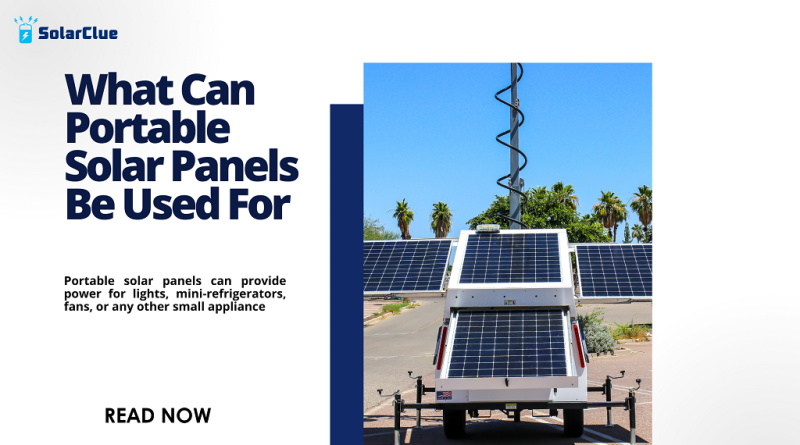What Can Portable Solar Panels Be Used For
In a world increasingly conscious of sustainable energy sources, portable solar panels have emerged as a popular choice. Portable solar panels are small, lightweight, and can be transported easily, offering sustainable energy solutions when regular power sources may not be available. But what can portable solar panels be used for? This article will take you through some of the potential applications for portable solar panels that are transforming energy consumption patterns across the globe.
Table of Contents
Powering Recreational Activities
A primary use for portable solar panels is in recreational activities. These panels can be used while camping, hiking, fishing, and more. Many camping sites are in remote locations without access to traditional power sources. Portable solar panels can provide power for lights, mini-refrigerators, fans, or any other small appliance. Similarly, people who love boating, fishing, or hunting can use these panels to keep their devices charged, such as trolling motors, GPS devices, mobile phones, or other electronic equipment. The portability and easy setup process of these panels make them incredibly convenient for these activities.
Providing Backup Power at Home and Work
Portable solar panels not only prove their worth in recreational activities but also as a backup power source at home and work. Frequent power cuts, particularly in remote or storm-prone areas, can be highly inconvenient and obstructive. Solar panels serve as an excellent energy source in such situations, powering lights, fans, and charging electronic devices. In office spaces, portable solar panels can power computers, projectors, printers, and more, ensuring work continuity during power outages.
Supporting Disaster Relief Efforts
Portable solar panels find extensive use in disaster-hit areas. After a natural calamity, electricity infrastructure is often severely affected, making it difficult for aid workers to carry out recovery operations. Portable solar panels can offer an immediate and reliable solution to power necessary equipment, communication devices, medical facilities, and more. The freedom to transport these panels to any location makes them an invaluable resource during disaster relief operations.
Aiding Scientific and Archeological Research
Scientific expeditions and archaeological digs often happen in the middle of nowhere. But, the nature of these activities often requires power – for lighting, charging devices, and running specialist equipment. Portable solar panels can fill the obvious energy gaps in such remote locations. By leveraging the sun’s energy, researchers can maintain a steady power supply without relying on generators that require fuel.
Supporting Military Operations
Military operations, training exercises, or reconnaissance missions typically take place in remote areas. The absence of utility power in these situations necessitates an alternative reliable power source, and this is where portable solar panels step in. They can be used to power communications equipment, provide light, and charge other essential gadgets. Solar energy also reduces the need for fuel convoys, significantly enhancing operational safety.
Charging Electric Vehicles
More recently, portable solar panels have found their way into the electric vehicle industry. Solar panels can be used to charge electric cars, bikes, or scooters, offering an economical and eco-friendly alternative to traditional power charging methods. Some electric vehicle manufacturers have already started integrating solar panels into their vehicles, promoting green energy and reducing charging costs.
Conclusion: Portable Solar Panels – A Versatile Power Solution
In conclusion, the uses of portable solar panels are multifold and impactful. From powering recreational activities to supporting disaster relief operations, these devices are becoming an increasingly indispensable power solution. They are not shying away from breaking into new fields either, with applications springing up in sectors like electric vehicles. As solar technology continues to improve and become more efficient, we can expect portable solar panels’ applications to expand even further, proving once again that the future of energy consumption is, indeed, solar.


